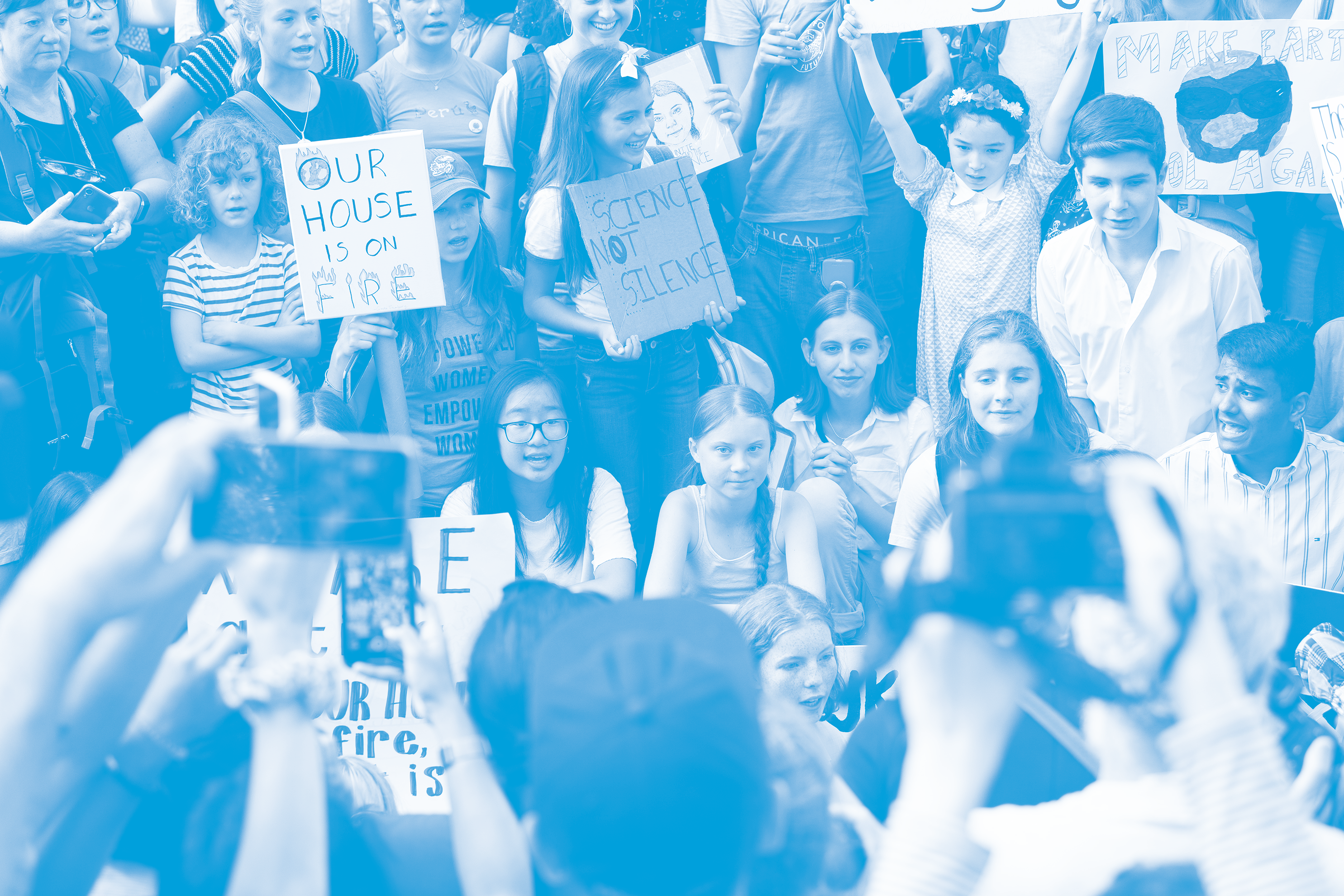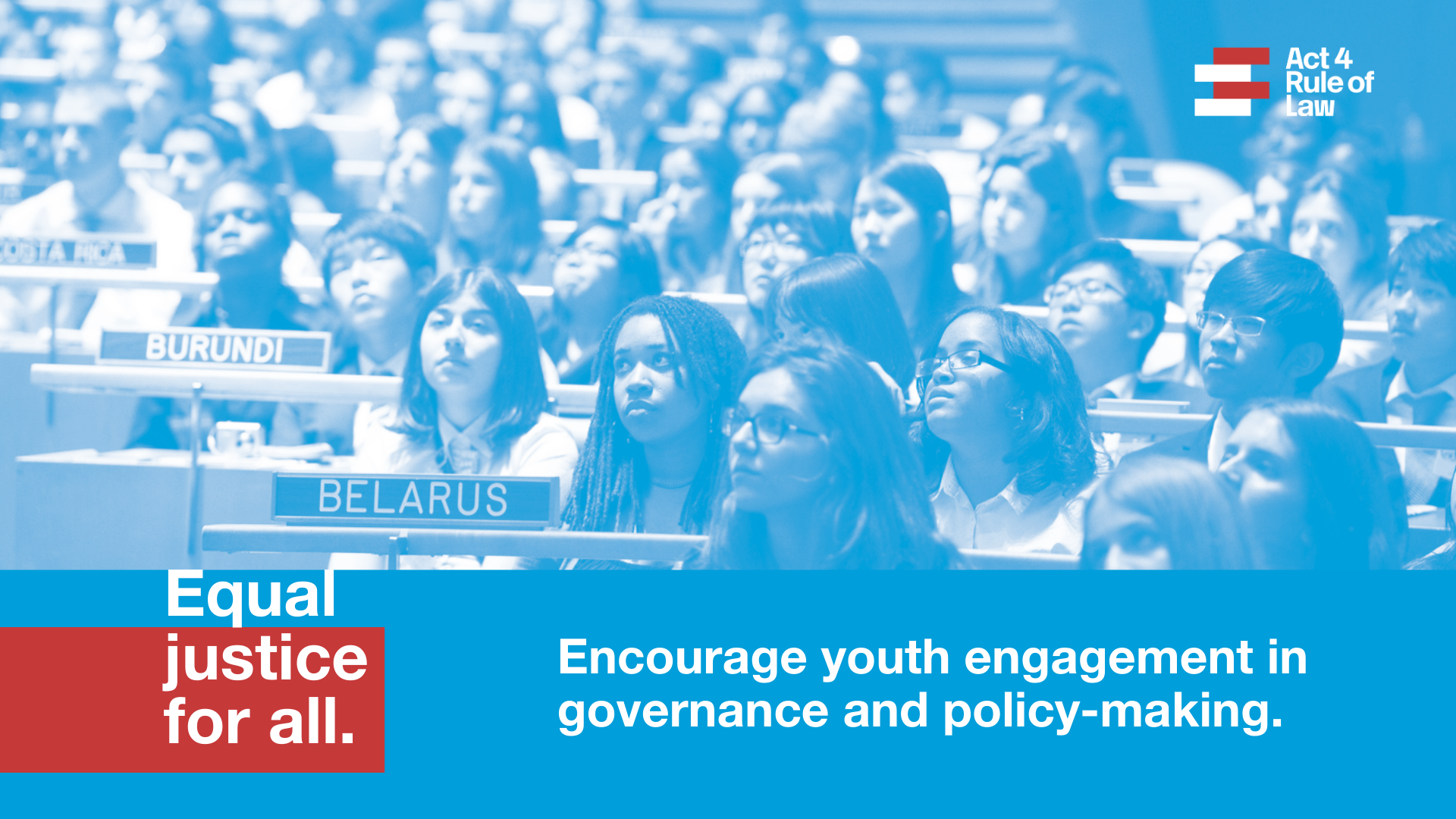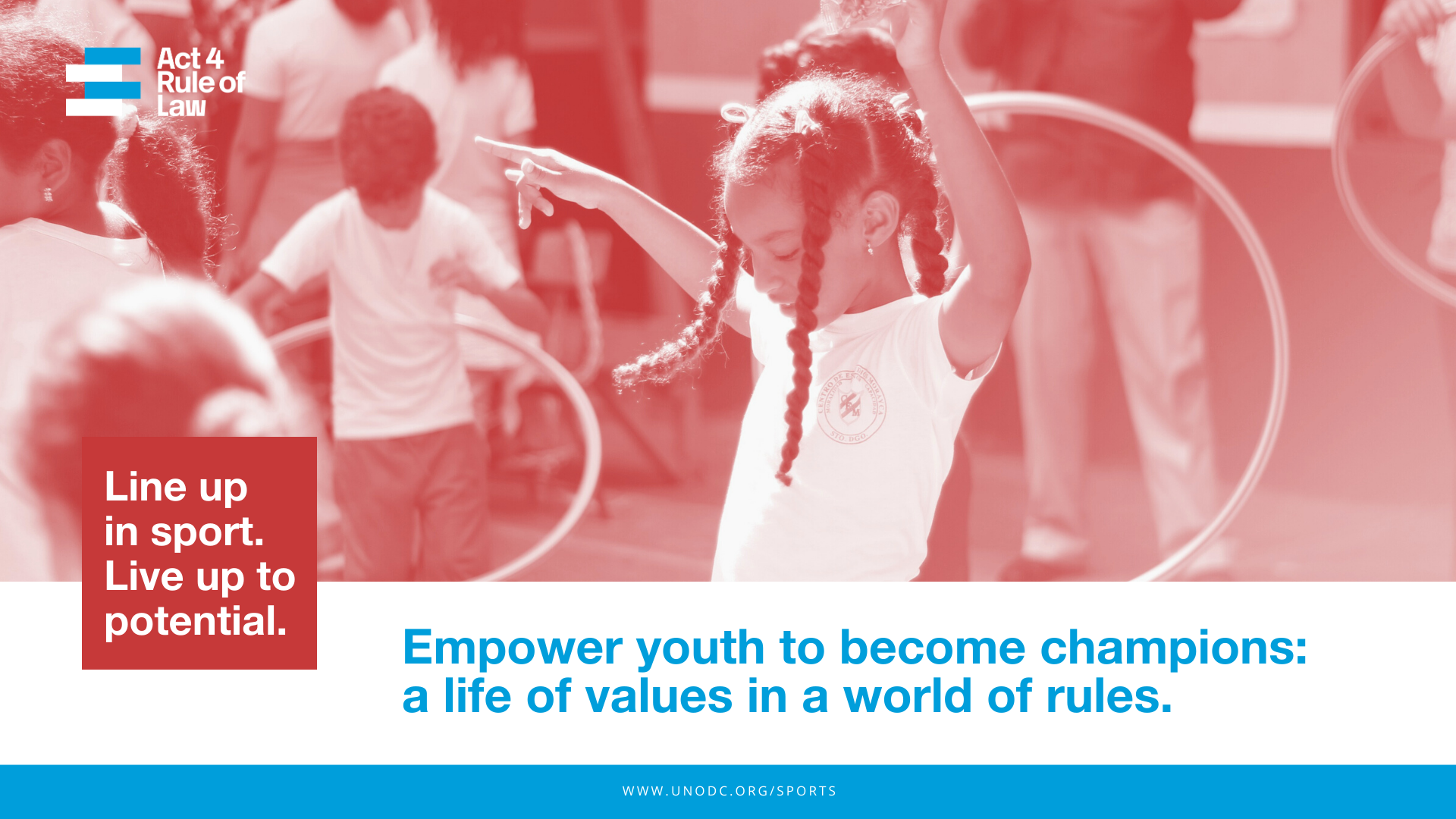Although the crucial role that youth can play in promoting rule of law is broadly recognized and acknowledged, negative stereotypes and stigmatization that associate young people with violence may ignore the fact that most young people are not involved in violence, and many are in fact positively contributing to peace, human rights, and development efforts and helping to build better and more justice societies.
The world today is home to the largest generation of young people in history, with approximately 1.8 billion 10- to 24-year-olds contributing to the global population1.“Connected to each other like never before, young people want to and already contribute to the resilience of their communities, proposing innovative solutions, driving social progress and inspiring political change, in urban as well as rural contexts.”2
In recent years, there has been an increased recognition in policy frameworks of the importance of involving young people in policymaking, including the 2030 Agenda and the Sustainable Development Goals, the 2018 United Nations Youth Strategy, and the 2015 Doha Declaration, which became the first international declaration to specifically call for the involvement of young people in the promotion of crime prevention and criminal justice activities, closely intertwined with the rule of law. United Nations Security Council’s Resolution 2250 also recognizes that young people play an important role in the maintenance of international peace and security.
Despite these advances, the perception prevails among young people that there are insufficient opportunities for their meaningful engagement in promoting the rule of law. To enhance young people’s trust in justice, institutions and the rule of law, it is important to promote the realization of full social economic, social, cultural, civil and political rights of young people, address issues of injustice and unfairness, and create opportunities for their free, active and meaningful participation.
Young people face particular challenges in realizing their human rights. Challenges like violence, drugs, and limited economic opportunities and political participation. Their access to healthcare, education, decent work, and essential technologies must be protected under the rule of law. And when young people find themselves in conflict with the law, their rights to fair, safe and independent justice must be assured, and the focus must be on rehabilitation, rather than punishment. The right to participate in public affairs is key, and young people bring a voice of change, and their role in advocating for justice and the rule of law can be a powerful force for reform.
To ensure such opportunities, renewed efforts are needed by countries around the world to provide access to inclusive and quality education from early childhood and to increase opportunities in formal and non-formal education to learn about the rule of law, civic participation and human rights. The role of caregivers and educators is essential to encourage young people to value and apply the principles of the rule of law in their daily lives, including making responsible decisions, promoting the values of tolerance and respect and enhancing important life skills such as critical thinking.
Expanding opportunities for meaningful engagement also requires investing in youth-led initiatives at the local, national and international levels, in which young people are actively shaping their communities. Institutionalized mechanisms for young people to contribute to policy making on the rule of law and crime prevention are of particular importance.
New technologies hold enormous potential as for facilitating their civic participation. They are creating additional opportunities for education, access to information, dialogue and communication – if they can be made available to and accessible by all young people across the globe.
Ensuring meaningful engagement by young people in promoting the rule of law also requires that opportunities for their positive development, wellbeing, and rights to health, education, and support are covered, allowing them not only to focus on making positive contributions to society (rather than struggling to survive), but also to have trust in their institutions and in the delivery of justice.
References:
- United Nations Youth Strategy, “Youth 2030: working with and for young people”, 2018
- ibid
- A/CONF.234/10 - Background paper prepared by the Secretariat for the Fourteenth United Nations Congress on Crime Prevention and Criminal Justice - Workshop 3. Education and youth engagement as key to making societies resilient to crime
- E/CN.15/2019/CRP.5 - Conference room paper prepared by the Secretariat prepared for the twenty-eight session of the Commission on Crime Prevention and Criminal Justice - Youth empowerment to support the implementation of Sustainable Development Goal 16: the role of education




